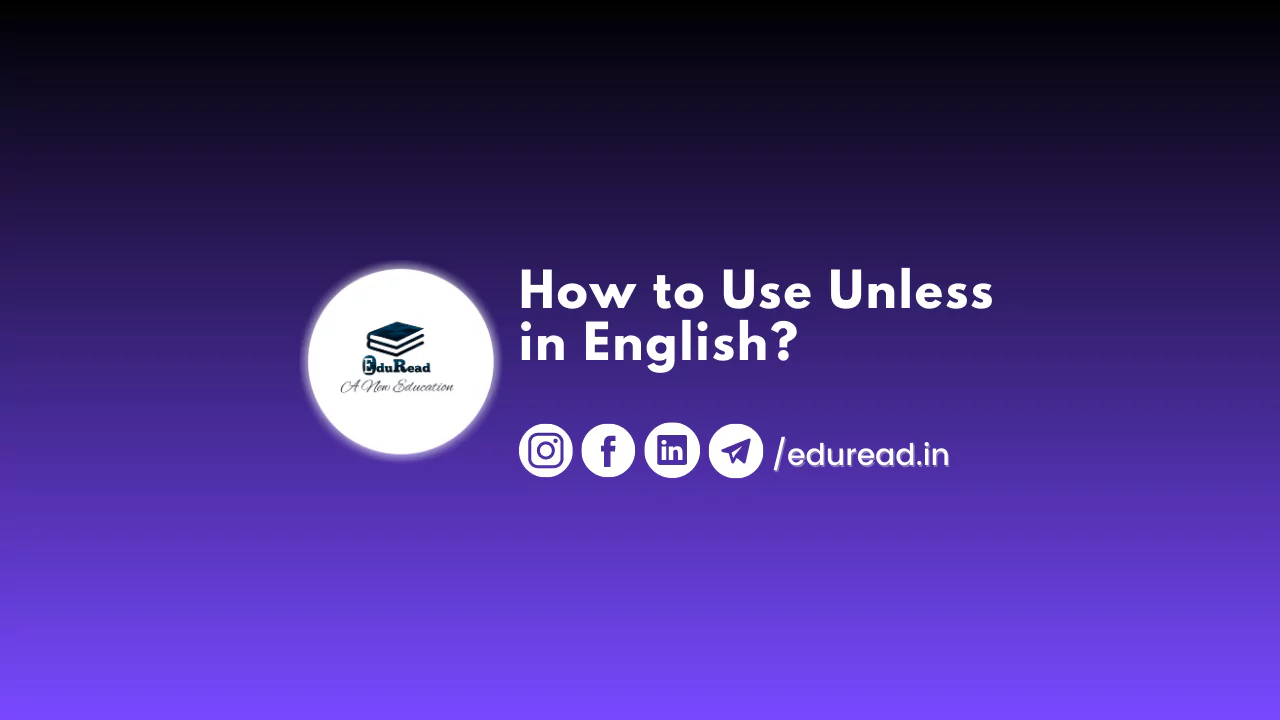Unless is a conjunction that is used to introduce a conditional clause that expresses the negative condition required for the main clause to be executed. In this blog, we will explore how to use unless in English.
Unless is usually followed by a clause that contains a negative verb, such as “don’t”, “isn’t”, “aren’t”, “cannot”, or “won’t”. For example, “I won’t go to the party unless you come with me”. Here, the condition is that the listener must come with the speaker, or else the speaker will not attend the party. For instance, “Unless you study hard, you will fail the exam”. This means that if the listener does not study hard, they will fail the exam.
Another way to use unless is to express a contrast between two situations. For instance, “I like going to the beach unless it’s too hot”. This means that the speaker enjoys going to the beach but only if the weather is not too hot.
One common mistake when using unless is to confuse it with if not. Although both expressions are used to introduce negative conditions, they have different meanings. For example, “I will be late if not for the traffic”. This means that the speaker will be on time if there is no traffic. On the other hand, unless is used to describe a situation that is true only if a certain condition is not met.
Unless can also be used to introduce hypothetical situations. For instance, “Unless I were rich, I wouldn’t buy a sports car”. This means that the speaker is not rich and, therefore, would not buy a sports car.
Here are some more examples of how to use unless in English:
- “I won’t eat sushi unless it’s fresh”.
- “Unless you apologize, I won’t forgive you”.
- “I won’t leave the house unless it stops raining”.
- “Unless you stop playing video games, you won’t finish your homework”.
- “I won’t take the job unless the salary is good”.
- “Unless you lock the door, the cat will escape”.
- “I won’t watch the movie unless it has good reviews”.
- “Unless you wake up early, you will miss the train”.
- “I won’t buy a car unless it’s fuel-efficient”.
- “Unless you have a passport, you can’t travel abroad”.
When using unless, in English, it is essential to ensure that the negative condition is clear and that the sentence is grammatically correct. It is also important to note that unless is generally used in informal speech and writing. In formal situations, it is more appropriate to use phrases such as “if not” or “except if”.
Conclusion
In conclusion, unless is a useful conjunction that is used to describe negative conditions, consequences, and hypothetical situations. By using unless correctly, you can express your thoughts and opinions more clearly and effectively. Just remember to keep the negative condition clear, the sentence grammatically correct, and the writing appropriate for the situation.
Follow Us for more such content to improve your speaking skills:
Check out this blog to overcome Public Speaking Fear: https://eduread.in/car-vocabulary-words-speak-new-york/
And visit us for more

2 thoughts on “How to use Unless in English | Speak New York”